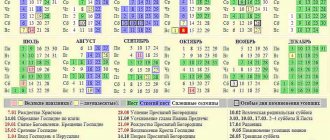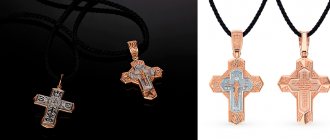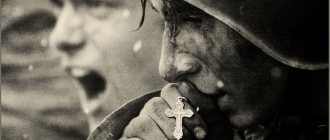There are many traditions, rituals and even some omens associated with the world of the dead. Neither clergymen, nor various kinds of magicians and healers, nor even just ordinary people who are familiar with signs that have come down to our time from the past are strongly discouraged from joking with this.
About the author About the book
So what to do with what is left after the deceased? This article describes in detail all kinds of signs and customs that tell you what to do with the things of a deceased person, and you will also find out what priests and psychologists think about this.
What people usually do
People in such situations act differently: some take them to church or a shelter immediately after death, some consult with a priest before taking any action, and some keep them and do not distribute them until they die. until things decay. The latter does not seem entirely reasonable, although very natural - loved ones want to keep at least something in memory of the deceased person, and his things become a symbol, an illusion that nothing happened to him, he just left the house for a short time. However, it is still not recommended to keep what belonged to a person, but to find out when after death you can distribute the things of the deceased. There is a belief that these things preserve the energy a person possessed during life. Therefore, most religions (Orthodoxy included) do not advise preserving such items.
Photo
It is considered a bad idea to hang a photo of a deceased person on your bedroom wall. According to legend, he will drain the life from anyone sleeping in this room. Therefore, it is better to store photos of the deceased in a separate photo album or envelope. This is especially true for photographs from funerals, if they have survived. In the case when the relationship with the deceased was good and you want to preserve the memory of him as long as possible, it is allowed to store the photo in the living room or another room where no one sleeps. You need to take photos especially seriously, the presence of which makes living loved ones feel ill. It is better to hide such images and take them out only when there is a strong desire to see a long-forgotten face.
For a tombstone, it is customary to use the photograph that the deceased liked during his lifetime. After the funeral, the corner of the photograph of the deceased person must be tied with a black ribbon and left in the house for 40 days. And during the wake it should be on the table, symbolizing the presence of the deceased relative.
Why you shouldn't save the things of the deceased
Now let’s clarify whether it is possible to distribute the things of the deceased. As we have already said, storing them is not recommended. The fact is that the death of a loved one, naturally, is associated with pain and suffering both for him and his relatives who are left alone with themselves. These experiences mix and create powerful negative energy around the deceased’s belongings, which accumulates more and more over time in the room where they are stored. This is especially true for everything that was in direct contact with the body, such as jewelry or costume jewelry, clothing, and especially bed linen. However, you can always take the jewelry to church and check with the priest whether you can wear them. It is likely that he will advise you to consecrate them, and after this the jewelry can be calmly put on, while remembering the deceased and praying for his soul.
By the way, priests say that you can wear a cross that belonged to a previously deceased person, despite the fact that there are completely opposite opinions on this matter. There is a superstition that by putting on the cross of a deceased person, a person thereby takes upon himself his lifetime sins, but this is really just a superstition.
Sleeping area
Many prejudices relate to the bed on which a person died. It is believed that if the deceased died in agony and illness, the furniture had absorbed bad energy, so it should be gotten rid of immediately. If, out of necessity, one of the relatives has to use the sleeping place of the deceased for its intended purpose, then you need to treat it as follows: change the bed linen and, if possible, the mattress, move a church candle over the bed, read prayers and wish the deceased well-being in another world. In the future, it is advisable to dispose of this piece of furniture.
Letters and manuscripts
As for letters, manuscripts, diaries, it all depends on the relatives themselves, whether they want to leave the papers of the deceased as a keepsake or not. Some may consider it unethical to store and perhaps read the texts of even a deceased person; for others, this will be the only item that they will keep, and the best memory of the deceased. But if relatives decide to get rid of his papers, under no circumstances should they be thrown into the trash; it would be much better to burn them so that prying eyes cannot read them.
However, in general, priests are of the opinion that the memory of a person should be preserved not in things, but in minds. Therefore, the best answer to the question of when you can distribute things after a deceased person is: as soon as possible, and you should not leave a lot of things. A much better solution would be to get rid of them, which we'll talk about later.
Real stories
“The good things of the deceased mother were taken to the village. The locals took it apart. There is no village - then go to church. It will be useful to someone. It’s not everyday objects that are important, but the memory that is stored in the heart.”
“Dad has been keeping everything that belonged to my mother and my deceased brother for more than 39 years. He even left his army jacket. This probably can’t be done.”
“After my mother’s death, I decided to consult with my two sisters. One replied that she did not need anything. I offered to take everything to the temple. Another argued with me, deciding that I couldn’t wait to get rid of everything that belonged to my mother.”
“We brought things to church. They refused to take it. I don’t remember what they explained. That was a long time ago. I had to throw it in the trash.”
What did you do with the things of a deceased relative, or maybe your friends decided differently? Please share in the comments.
When can you give away the belongings of a deceased person?
In the Orthodox tradition, it is believed that the belongings of the deceased must be distributed before the fortieth day after his death. Therefore, the answer to the question whether it is possible to distribute the belongings of a deceased person will be in the affirmative. Relatives have quite a long time for this good deed. Therefore, in principle, it does not matter on what day the things of the deceased can be distributed. Within forty days after the soul leaves the body, according to the Orthodox, it goes through ordeals in order to ultimately end up in heaven or hell. Therefore, any good deed done on earth in her name will benefit her. The more relatives are merciful to those in need, the more merciful God will be to the soul of the departed person. It is assumed that the people who received the items will remember the deceased and thereby influence where his soul ends up (so you can ask them directly so that they do not forget to remember him).
However, according to another opinion, it is better not to touch things until the fortieth day, since the energy of the deceased is too negative to be distributed to strangers. Items can be safely distributed only after this period has expired. In addition, supporters of this position believe that all these forty days the soul is at home, next to loved ones, and it will be simply unpleasant for her to see how quickly her former things are given away. However, the opinion is quite dubious.
But the Bible does not say a word about how many days later the things of the deceased can be distributed, therefore, if you do not listen to what the priests say, you can believe whatever you want in this regard.
Church opinion
The clergy agree with psychologists and also do not recommend wearing the things of the deceased, since one type of personal belongings of the deceased can lead to despondency, and, as you know, despondency is considered one of the sins. Also, you cannot wear the body cross of a deceased person, regardless of what metal it is made of, because the cross protects only its owner, therefore, after his departure to another world, it is better to bury this particular thing with the deceased or put it in a secluded place.
It is also not recommended to wear gold wedding rings, especially if the couple has been married, again due to the fact that sacred protection was intended only for the married couple, and not for their relatives. Churchmen do not recommend wearing gold jewelry in the form of amulets and amulets, again due to the fact that idolatry and deviation from Orthodoxy are naturally unacceptable for the church.
In other cases, clergy do not impose a ban on wearing gold jewelry, although they admit the possibility of energetic influence. After all, the same relics of saints can heal, and accordingly, the gold of the dead can influence the new owner, especially if the deceased was not distinguished by righteousness.
What to do with the room of the deceased
After forty days have passed since the death of a person, it is worth doing a large-scale cleaning of his room. Throw away all objectively unnecessary things, including old furniture, which is completely useless to keep, because it is saturated with human suffering. If there is no reason to throw it away, you can sprinkle it with holy water, thereby cleansing it. It is better to put personal items that relatives have decided to keep away in the closet for a while, so as not to constantly come across them, each time experiencing the pain of loss. We have already discussed on what day the things of the deceased can be distributed. If the deceased was seriously ill before his death, then it is better, just in case, to make repairs to the room in order to clear the space of negative energy, if possible.
Phone and jewelry
It is believed that if the phone was with the person at the time of death, especially if the death was violent, there is no need to store it. You can donate it to charity or gift it to those in need.
If you have any jewelry, leave it in the family. Products with stones must be cleaned by soaking overnight in salt or holy water. If the deceased was engaged in magical practices, it is better not to touch his jewelry, as it can attract misfortune. Jewelry must be stored in a separate box; it is allowed to be passed on by inheritance. Jewelry carries the owner’s energy and ancestral power, so they cannot be given away.
Where can you put the deceased's belongings?
There are actually a lot of options. Some mementos can be left in the family, some can be distributed to loved ones. If we are not talking about family, then first of all it is better to give things to those who really need them. If there are no such people around, you can give things to the nearest branch of the Red Cross, the nearest church or any collection point for things for the poor. Nowadays, funeral service bureaus do the same thing, taking the deceased’s belongings and distributing them to those in need in the same way. Completely unusable clothes can be left at trash cans or simply burned, the latter is even better. In any case, it is important not to try to squeeze profit out of the deceased’s belongings, but to do something good for others with their help. Otherwise, according to some superstitious individuals, all sorts of punishments and illnesses may await you. However, it’s not even a question of punishment: it’s simply not very ethical to profit from death. It is also worth adding that there is an unspoken rule - it is better not to give the things of the deceased into one person, but to distribute them among at least several people.
Why you shouldn't wear the shoes of a deceased person
If your entire wardrobe has been distributed, but there are still shoes left, you need to remember that you cannot keep them. Relatives should not wear shoes or shoes of the deceased. There are several reasons:
- The Talmud contains a statement that a dream in which the deceased asks for something is a good sign, which cannot be said about a request to take away shoes, therefore Jews will never keep the shoes of the deceased, because they will experience fear in the subconscious level, they are afraid that something bad will happen;
- take into account the cause of death, if a person died due to infection, leather shoes that belonged to him cannot be worn, since this material is a conductor for microorganisms.
Is it possible to keep the things of the deceased?
Along with the question of how many days after it is possible to distribute the things of the deceased, many are interested in whether they can be kept for themselves - there are different opinions on this matter. Some believe that there is nothing wrong with this; at a time when clothing, especially outerwear, was in short supply, many, even during the life of the deceased, could begin to distribute his things among themselves. Nowadays such a situation is rare, but nevertheless, relatives often tend to keep some things as souvenirs, especially completely new ones. Another opinion says that doing this with the things of the deceased is a great sin and it is absolutely necessary to give away absolutely all items, even furniture from the room where the person lived shortly before his death.
As for the deceased's money, this is a separate issue, but almost the same rules apply to it as to other things. It is necessary to set aside some amount for alms. And of course, thank the deceased for such an involuntary gift before becoming a full-fledged owner or mistress of the funds, regardless of the amount.
Dishes, personal items
If the dishes are of no value, it is better to distribute them to those in need. Expensive family silver can be cleaned and preserved for posterity as a family heirloom.
An interesting fact is that at the moment of the owner’s death, the watch on his wrist can stop. The same goes for the clock in the house. Since personal belongings store the energetic memory of the deceased, it would be right to get rid of such items. The best solution is to give to the poor. If the deceased’s watch is valuable as a keepsake, you can keep it, but it is not advisable to use it. Store them in a separate box.
When can you give away a deceased child's belongings?
All of the above tips do not apply to children's belongings. They are strictly not recommended to be distributed. To be honest, there are hardly any parents who would agree to accept the things of a deceased child and put them on their own.
In the event of the death of a child, it is best to burn or throw away clothes; you should do the same with toys, under no circumstances giving them away to other children, so as not to transfer negative energy. And just don’t put other parents in an awkward position in which they won’t know how to tactfully refuse. In the same way, there is no need to put clothes on a younger child if something irreparable happens to the older one. However, you can leave a couple of the most significant and favorite toys, but take them out only in a moment of intense grief for the baby.
If you yourself find yourself in such a situation that someone gave you things that belonged to a previously deceased child, pray for his soul, but do not use the things or even leave them at home. You should not store such things, it can lead to a variety of consequences.
What is prohibited from giving away
There are different opinions on what to do with the movable and immovable assets of the deceased. But the church, psychics and psychologists know exactly what not to do with such objects. What is prohibited from giving:
- - Clothing in which a person died is prohibited from leaving, wearing or giving as a gift. This includes bedding sent on the deathbed.
- — Child’s wardrobe and toys. It is better to burn all the baby's belongings. You can leave something as a keepsake, but remove it from a visible place.
- — Various household items touched by a person who passed into another world from a contagious disease. Many diseases are transmitted through personal contact, so it is better to check with doctors on how to dispose of the property of a deceased person.
- — You cannot bury a person with a wedding ring while his spouse is alive. It is also prohibited to place any property of healthy people in the grave.
Father's advice
In Orthodoxy, the answer to the question of when it is possible to distribute the belongings of the deceased is direct and unambiguous - within forty days after death. In contrast to the pagans, who burned things belonging to a deceased person along with him on the funeral pyre, in Orthodoxy these things, as already mentioned, are dealt with completely differently. They are distributed as alms within forty days after the death of a person. However, as Orthodox priests say, nothing bad will happen if for some reason the relatives did not manage to distribute the deceased’s belongings during this period. This can be done calmly later, although it is better to do it within forty days, which, according to Christian tradition, are especially important for the soul of the deceased, whose posthumous fate is decided at this time. It is also possible to check with the priest in the nearest church when things can be distributed after the deceased.
Furniture
In this matter, the situation is similar to personal clothing .
The bed (bed or sofa) on which a person died or was ill for a long time and was chained to it must be disposed of.
If we are talking about a favorite item of the deceased , the sight of which causes pain to you, then you can give it away or throw it away. For someone, on the contrary, a favorite coffee table or bedside table of the deceased, on the contrary, will serve as a good memory .
Category: question-answer
Is it possible to take icons from the house of the deceased?
Expert opinion
Father Pavel
Clergyman
There has long been a Russian custom of removing icons from the house in any unforeseen circumstances. This is a shrine, in addition, it is a family heirloom - passed on from generation to generation. The icon, like other religious attributes, does not pose a threat to the relatives of the deceased. The choice in such a situation is everyone’s business, but it is still recommended to take the holy image to your home and place it next to the other images.
Is it possible to burn the belongings of a deceased relative?
Expert opinion
Father Pavel
Clergyman
It is not necessary to destroy all the property of the deceased. This is a sign of disrespect for him. If relatives (mother-in-law, dad, sister, wife or daughter) do not want to take clothes or other things that belonged to the deceased, you need to take this into account and allow them to do as they see fit. Property should be distributed if it is impossible to keep it. However, all items cannot be allowed to be burned. In this way, you can destroy bedding from the bed of the deceased, as well as things that caused pain to the deceased.
Is it possible to throw the deceased's old things in the trash?
Expert opinion
Father Pavel
Clergyman
Some household items and clothes need to be sent to a landfill, for example, a bed, bedding. But most of it is in good condition. Surely there will be something that can be left as a souvenir, and some more will be given away. Equipment is allowed to be scrapped and money can be donated to those in need. If you take all your property to the trash, it will not benefit anyone, in addition, such a gesture will symbolize disrespect for the deceased.
The deceased worries about things in his sleep. What to do?
Expert opinion
Lantsova Kristina
Esotericist
It is a bad sign to give some items to a deceased person in a dream. For this reason, the request of the deceased (to give something from his things) cannot be fulfilled. If in reality such items remain with the dreamer, it is better to give them away immediately upon awakening. Then you need to light a candle in the temple for repose. This will help you avoid similar dreams in the future.
Is it possible for pregnant women and children to wear things of the deceased?
Expert opinion
Lantsova Kristina
Esotericist
The Church does not see a negative connotation when relatives use the belongings of a buried neighbor. However, esotericists say that this can cause illness, since things absorb negative energy. They are also cleansed using holy water. Children are more sensitive to such effects, as are pregnant women, and therefore it is better not to use the deceased’s belongings. But such recommendations are more often given regarding clothing items that were in contact with the dead. Other items can be used after cleaning.
Is it harmful to wear a deceased relative's watch?
Expert opinion
Lantsova Kristina
Esotericist
It is better to give things that the deceased wore for a long period to strangers. This is due to the fact that the watch retains the energy of the deceased for a long time. If you still decide to continue wearing them, it is recommended to clean them using blessed water.
Is it possible to wear the gold of a deceased person?
Expert opinion
Lantsova Kristina
Esotericist
Gold absorbs negative energy better than other metals, and therefore you should not immediately put on jewelry. It is especially dangerous to do this if the jewelry was removed after death. Such jewelry is given away or worn, but in the second case, a special ritual must first be performed, which will clear it of dead energy.
Is it possible for a wife to wear things of her deceased husband?
Expert opinion
Father Pavel
Clergyman
The Church does not prohibit such actions. It is acceptable to wear your late husband's belongings if you wish, but should be avoided if possible. The relationship is not blood, so theoretically the wife is not exposed to negative energy. However, long-term cohabitation brings people closer together, so the other half still becomes more sensitive to this kind of influence. Despite the absence of a ban, it is better not to wear things of your deceased husband.
Is it possible to wear the ring of a deceased person?
Expert opinion
Lantsova Kristina
Esotericist
Jewelry first undergoes a cleansing procedure (contains dead energy). But even such an action will not help protect a person when wearing a ring. This type of jewelry contains concentrated negative energy. Standard cleaning will not solve the issue. It is believed that through the ring one can take over the fate of the deceased.










